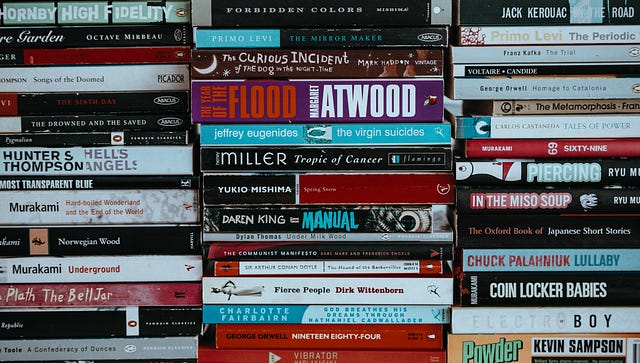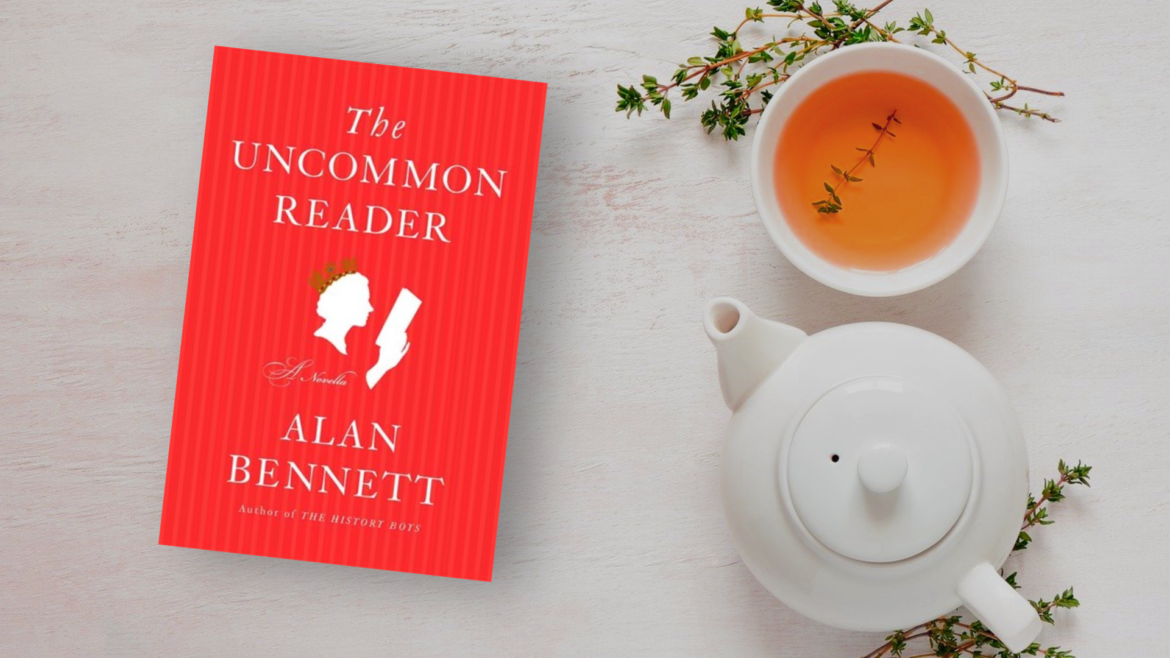Alan Bennett is most famous for his Olivier & Tony Award-winning play, The History Boys, a dramedy on the trials of high school boys heading to college. With The Uncommon Reader he veers into lightweight literary territory, distinct in his charm but low on gravitas.
In The Uncommon Reader, we enter the royal household of England, where the Queen has just discovered the joy of reading on a visit to a mobile library. To accept a plot based on the premise that a monarch and diplomat, with all her fancy education, has not discovered literature requires a significant level of credulity.
It is tempting to give up on the flippant story in the early pages of this short novella, but from one reader to another, there is nothing more riveting than to watch someone else fall in love with books.
The Queen’s foray into reading is aided and abetted by a kitchen boy, Norman who acts as per personal curator for all things literary. She discovers that “Reading is untidy, discursive and perpetually inviting”, a sentiment I cannot disagree with.

Photo by Annie Spratt on Unsplash
As we track her journey through a diverse selection of literary volumes, what drives the plot forward is everyone’s reaction to her reading. A seemingly harmless hobby is less than welcome.
The Prime Minister and her personal advisers are distinctly uncomfortable with this unproductive habit. They are worried that the Queen’s increasing intention of reading books out at diplomatic events will cause some political scandal. Since they seem to have little control over the content she reads, they fear her reading tastes may be misconstrued as political campaigning or criticism. It’s twenty first century, and people still fear the power of books.
“It was reading, and love it she did, there were times when she wished she had never opened a book and entered into other lives. It had spoiled her. Or spoiled her for this, anyway” — Alan Bennett
The Queen suffers from another side-effect of reading, one that many others have suffered from since the beginning of time. She loses interest in any other worldly pursuits and is seized with the feeling that there isn’t enough time to get through all literature worth reading.
And like most readers before her, she goes through the inevitable transition from being a reader to a writer; when she realizes that ‘Reading is not doing…’ and she needs to find her own voice.

Photo by Priscilla Du Preez on Unsplash
While the novella doesn’t pretend to be anything more than what’s in black and white, it’s ironic that the reading journey of the uncommon reader is rather a common one.
Once you fall for books, it’s not so much the choices of what you read and what it means to you, but a universal satisfaction that comes with reading. It’s that kindred spirit that unites all readers in the word. The same spirit that unites the kitchen boy and the queen in an unusual friendship, the plebeian and the royal.
Is there any pursuit in the world that opens up the doors of the mind as reading? I wonder if Alan Bennett could have created the same charm if the Queen was to have discovered and loved knitting? Would it throw the Prime Minister in the same confusion if the Queen wanted to talk about purls and stitches on national television, as she wanted to talk about Dickens?
I don’t think so. The true protagonist of the story are the books.
For more book reviews, go here



4 comments
Reading is the hero if you ask me
Yeah I guess so.
I read this one years ago and really enjoyed it. I should definitely do a re-read someday.
-Lauren
http://www.shootingstarsmag.net
It is a fun and quick read – love the book it references!